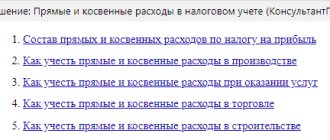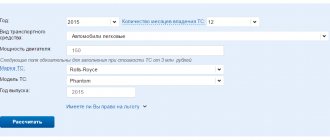Source: Magazine “Public Catering Enterprises: Accounting and Taxation”
Often, the tax authority applies such a measure of influence on taxpayers as suspending transactions on bank accounts, thereby significantly complicating the activities of the enterprise. At the same time, the actions of tax officials are not always lawful. Let's figure out in what cases the supervisory authority has the right to suspend operations and what the risk of blocking an account is. Is it possible to open an account in another bank in this case? What can be done if the funds in the account exceed the amount due to which the account is suspended? How to remove the block?
Grounds and procedure for suspending account transactions
The procedure for suspending account transactions is regulated by Art. 76 of the Tax Code of the Russian Federation and means the bank terminates all expense transactions, with the exception of those whose priority, according to civil law, precedes the fulfillment of the obligation to pay taxes and fees.
Received funds are credited to the account without restrictions. So, tax authorities have the right to suspend transactions on accounts in the following cases:
- The organization or entrepreneur did not fulfill the requirement to pay taxes, penalties, or fines on time. In accordance with paragraph 1 of Art. 76 of the Tax Code of the Russian Federation, suspension of transactions on bank accounts and electronic money transfers is used to ensure the execution of a decision to collect a tax, fee, penalty and (or) fine. The decision to suspend cannot be made before the decision to collect the tax is made ( Clause 2 of Article 76 of the Tax Code of the Russian Federation ). The same measure is used to enforce the decision to collect interest, since, according to clause 10 of Art. 68 of the Tax Code of the Russian Federation , they are collected according to the same rules as taxes, penalties and fines. Expense transactions are blocked for the amount specified in the decision to suspend operations and in the decision to collect. Payments above this amount may be made.
- The organization or entrepreneur did not submit a tax return within 10 days after the deadline for filing it. In such a situation, the inspectorate has the right to make a decision to block all open accounts of the organization (entrepreneur). In this case, the amount of the balance of funds in the taxpayer’s accounts does not play a role; all funds located in the accounts and received on them will be blocked ( clause 3 of Article 76 of the Tax Code of the Russian Federation ). A ten-day period based on clause 6 of Art. 6.1 of the Tax Code of the Russian Federation is calculated in working days.
The deadline after which the tax authority does not have the right to make a decision to suspend transactions on bank accounts is currently not established by the Tax Code ( Letter of the Federal Tax Service of the Russian Federation dated 02/09/2011 “Explanations on the issue of suspension of transactions on taxpayer accounts for failure to submit tax returns on the property of organizations" ). However, from 01/01/2015, this period will be limited to three years from the date of expiration of the ten-day period ( paragraph 3, paragraph “a”, paragraph 5, article 10 of the Federal Law of June 28, 2013 No. 134-FZ )
Please note
From 01/01/2015, the tax authority receives an additional right to block an account if the taxpayer, within 10 days after the end of the established period, has not fulfilled the obligation to transfer receipts of acceptance of requests sent to him in electronic form for the submission of relevant documents, explanations, notices of summons to the tax authority ( Subclause “a”, Clause 5, Article 10 of Federal Law No. 134-FZ ).
Let us remind you that from 01/01/2014 the submission of a VAT return on paper is no longer provided. The capital's tax authorities, in Letter No. 24-15/022540 dated March 12, 2014 , explain that failure to comply with the procedure for submitting a tax return in electronic form may result in liability in accordance with Art. 119.1 of the Tax Code of the Russian Federation - in the form of a fine in the amount of 200 rubles. It is noted that the tax authority does not provide for the suspension of transactions on bank accounts for failure to submit a VAT return in electronic form via telecommunication channels.
Based on the results of consideration of the tax audit materials, the tax authority has the right to take interim measures, which include, among other things, suspension of transactions on bank accounts ( clause 1 of Article 76 , subclause 2 of clause 10 of Article 101 of the Tax Code of the Russian Federation ).
The account cannot be blocked for other reasons.
The decision to block is made by the head (deputy head) of the tax authority and sent to the bank in electronic form ( clause 4 of article 76 of the Tax Code of the Russian Federation ). A copy of the decision is transferred to the taxpayer-organization against a receipt or in another way indicating the date of its receipt, no later than the day following the day such a decision was made.
Article 76 of the Tax Code of the Russian Federation - who is it intended for?
Suspension of transactions on accounts is one of the methods designed to ensure the fulfillment of the obligation to pay taxes, fees, and, from 2021, insurance premiums, which are regulated by the Tax Code.
Article 76 of the Tax Code of the Russian Federation prescribes this procedure in detail for taxpayer organizations. These are the ones that will be discussed in this article, but it should be borne in mind that, according to paragraph 11 of Article 76 of the Tax Code of the Russian Federation, these rules also apply in relation to:
- organizations - tax agents, payers of fees, insurance premiums;
- individual entrepreneurs - taxpayers, tax agents, payers of fees and insurance premiums;
- organizations and entrepreneurs who are not taxpayers /tax agents, but are still required to submit tax returns. This category includes, for example, “simplified” people who issued VAT invoices or calculations for insurance premiums;
- private notaries and lawyers who have established law offices - taxpayers\tax agents and payers of insurance premiums.
In addition, the Tax Code also affects the responsibilities of banks. It also applies to tax authorities, since when blocking an account, they must strictly follow the established procedure.
Which accounts can have transactions suspended?
Let's figure out what kind of accounts we are talking about in Art. 76 Tax Code of the Russian Federation . Article 11 of the Tax Code of the Russian Federation recognizes settlement (current) and other bank accounts opened on the basis of a bank account agreement as an account. Under a bank account agreement, the bank undertakes to accept and credit funds received to the account opened for the client (account owner), carry out the client’s orders to transfer and withdraw the corresponding amounts from the account and carry out other operations on the account ( Clause 1 of Article 845 of the Civil Code of the Russian Federation ) .
It turns out that the account into which funds can be credited and from which they can be spent is blocked. This is, first of all, a current account, both a ruble account and a foreign currency account - if there are insufficient funds in ruble accounts ( clauses 1 , 2 , 5 , 6.1 of Article 46 , clause 2 of Article 76 of the Tax Code of the Russian Federation ). A corporate account intended for employees to make payments at the expense of the organization’s funds using corporate bank cards and to record transactions made using these cards can also be blocked. The opinion that a corporate account has all the features of a bank account was expressed by the Presidium of the Supreme Arbitration Court in Resolution No. 2942/10 dated September 21, 2010 in case No. A 50-8557/2009 .
What circumstances may lead to blocking?
Article 76 of the Tax Code of the Russian Federation contains a complete list of grounds for blocking an account. Such grounds include paragraphs. 2 and 3 tbsp. 76 Tax Code of the Russian Federation
Reasons for blocking
- non-payment of taxes, fees and insurance premiums;
- failure to submit a declaration;
- failure to transmit a tax receipt confirming the acceptance of the request for the submission of documents/explanations or notifications in accordance with clause 5.1 of Art. 23 Tax Code of the Russian Federation;
- ensuring the execution of decisions based on the results of a tax audit.
The issue of blocking an account for failure to submit calculations of insurance premiums to the Federal Tax Service has not yet been regulated by law and, at first, caused disagreements even among officials. As a result, the financial and tax departments agreed that before appropriate changes are made to the text of Art. 76 of the Tax Code of the Russian Federation, blocking is considered unlawful.
Which accounts cannot have transactions suspended?
The Inspectorate does not have the right to suspend operations:
- on transit accounts, since they do not correspond to the characteristics of the account specified in paragraph 2 of Art. 11 Tax Code of the Russian Federation . Transit accounts are opened for conducting transactions with foreign currency simultaneously with a current foreign currency account, regardless of the will of the organization (clause 2.1 of the Instruction of the Central Bank of the Russian Federation dated March 30, 2004 No. 111-I , Letter of the Ministry of Finance of the Russian Federation dated April 16, 2013 No. 03 02 07/1/12722 ) ;
- on loan accounts, since they are used to provide borrowers and return funds (loans). A loan account is not an account within the meaning of a bank account agreement ( clause 1 of the Information Letter of the Central Bank of the Russian Federation dated August 29, 2003 No. 4 , Letter of the Ministry of Finance of the Russian Federation dated November 21, 2007 No. 03 02 07/1-497 );
- for deposit accounts, since these accounts are opened on the basis of a bank deposit agreement ( clause 1 of Article 834 of the Civil Code of the Russian Federation ). Organizations cannot transfer funds from them, which means that such accounts do not correspond to the concept of a bank account ( Letter of the Ministry of Finance of the Russian Federation No. 03 02 07/1-497 ). The following must be taken into account. According to paragraph 5 of Art. 46 of the Tax Code of the Russian Federation , tax is not collected from a deposit account if the validity period of the deposit agreement has not expired. If there is such an agreement, the tax authority has the right to give the bank an order to transfer, after the expiration of the deposit agreement, funds from the deposit account to the settlement (current) account of the taxpayer (tax agent), if by this time the order of the tax authority sent to the specified bank has not been executed. tax transfer. Banks are required to inform tax authorities, among other things, about the availability of deposits in the bank and about the cash balances on them ( clause 2 of Article 86 of the Tax Code of the Russian Federation );
- on current accounts opened for the joint activities of the partnership, due to the fact that the funds in such an account are common property and not the property of the taxpayer. Moreover, tax collection can only be made at the expense of funds owned directly by the taxpayer by right of ownership ( Resolution of the Federal Antimonopoly Service of August 28, 2009 No. A 68-9966/2008-5/18 ).
What amount can be blocked?
The blocking applies only to the amount specified in the decision. You can spend funds in excess of this amount without restrictions - letter of the Ministry of Finance of Russia dated 04/15/2010 No. 03-02-07/1-167, dated 07/09/2008 No. 03-02-07/1-268, resolution of the Federal Antimonopoly Service of the North-Western District dated 09/13/2010 No. A56-75387/2009.
If a foreign currency account has been suspended, then the currency equivalent of the amount specified in the decision is frozen at the exchange rate of the Central Bank of the Russian Federation on the date the suspension began, in accordance with clause 2 of Art. 76 of the Tax Code of the Russian Federation, letters of the Ministry of Finance of Russia dated December 30, 2008 No. 03-02-07/1-542, dated April 15, 2009 No. 03-02-07/1-186, dated September 21, 2009 No. 03-02-07/1- 434.
What does suspension of operations mean?
An account that is blocked cannot carry out debit transactions: for example, it is impossible to transfer money from it to a counterparty or withdraw funds using a checkbook.
At the same time, not all expense transactions are always stopped. So, if the account is blocked for the amount specified in the decision to collect the arrears, then operations in excess of the specified amount can be carried out from the current account ( paragraph 3 , 5, paragraph 2, article 76 of the Tax Code of the Russian Federation ). The suspension of transactions on accounts does not apply to payments in a queue earlier than the write-off of taxes ( paragraph 3, paragraph 1, article 76 of the Tax Code of the Russian Federation ). The order of payments is established in clause 2 of Art. 855 Civil Code of the Russian Federation . According to this norm, if there are insufficient funds in the account to satisfy all the requirements presented to it, the following priority is determined:
- first of all - according to executive documents providing for the transfer or issuance of funds from the account to satisfy claims for compensation for harm caused to life and health, as well as claims for the collection of alimony;
- secondly - according to executive documents providing for the transfer or issuance of funds for settlements for the payment of severance pay and wages with persons working or who worked under an employment agreement (contract), for the payment of remuneration to the authors of the results of intellectual activity;
- in the third place - according to payment documents providing for the transfer or issuance of funds for settlements of wages with persons working under an employment agreement (contract), instructions from the tax authorities to write off and transfer debts for the payment of taxes and fees to the budget, as well as instructions from the Social Insurance Fund and the Pension Fund for writing off and transferring insurance premiums;
- fourthly - according to executive documents providing for the satisfaction of other monetary claims;
- in the fifth place - according to other payment documents in calendar order.
In other words, writing off taxes on behalf of the tax authority is a third-priority payment.
Accordingly, if there is a lack of funds, banks are obliged to first make payments of the first and second stages, and only then write off taxes. Payments of one queue are made in the calendar order of receipt of documents. For example, a payment order for the payment of wages and a collection order from the Federal Tax Service Inspectorate belong to the same queue - the third, therefore, if a payment order for wages arrives at the bank earlier than the Federal Tax Service Inspectorate’s order, the bank will be obliged to execute it first, and then, if there is money left in the account, – instruction of the Federal Tax Service ( Letter of the Ministry of Finance of the Russian Federation dated March 6, 2014 No. 03 02 07/1/9689 ).
If operations are suspended due to failure to submit a declaration (based on clause 3 of Article 76 of the Tax Code of the Russian Federation ), in the absence of an order from the tax authority to transfer the tax (corresponding penalties, fines) to the budget, the bank has the right to execute settlement documents (checks) of the bank client for the payment of wages to persons working under an employment contract ( Letter of the Ministry of Finance of the Russian Federation dated July 11, 2013 No. 03 02 07/1/26857 ).
The decision of the tax authority to suspend transactions on accounts and transfers of electronic funds is subject to unconditional execution by the bank ( clause 6 of Article 76 of the Tax Code of the Russian Federation ).
Please note that from 01/01/2014, in accordance with the amendments made by Federal Law dated 07/23/2013 No. 248-FZ in paragraph 12 of Art. 76 of the Tax Code of the Russian Federation , if there is a decision to suspend operations on accounts, banks are prohibited from opening a new account or granting the right to use new electronic means of payment.
In order to ensure the requirements of this paragraph, the Federal Tax Service in Letter No. PA -4-6/3003 dated 02/20/2014 announced that from 02/03/2014 the Internet service “Information on the availability of decisions on the suspension of transactions on taxpayer accounts” was put into operation, which allows banks receive up-to-date information about the existence of a decision to suspend transactions on the accounts of the taxpayer (fee payer, tax agent) and transfers of his electronic funds in the bank. The Internet service is open, publicly available and intended for use in banks.
Let us remind you that before the relevant amendments were made, organizations and entrepreneurs could not open an account only in those banks to which the decision to suspend account transactions was sent.
It will also not be possible to close a seized account if there is a balance of money on it, since when the account is closed, the balance must be spent, and debit transactions cannot be made. Even if there is no balance in the account and the account is closed, the decision to suspend operations will still remain in effect, and it will not be possible to open a new account either. Closing by the bank of the account in respect of which this decision was made is not the basis for recognizing the corresponding decision as invalid or terminated ( Resolution of the Federal Antimonopoly Service VSO dated 01.02.2013 in case No. A 19-12728/2012 ).
Therefore, the organization or entrepreneur is interested in having the account unblocked as quickly as possible.
Bank actions
Having received a decision to block, the bank must do the following:
- Inform the tax authorities how much is in the frozen account.
- Proceed with the execution of the decision , what should be done until the decision to cancel the blocking is received, in accordance with clause 7 of Art. 76 of the Tax Code of the Russian Federation, letter of the Ministry of Finance of Russia dated June 11, 2010 No. 03-02-07/1-276. If the decision indicates several taxpayer accounts at the same time, then the bank must block all account data within the amount specified in the sent decision - letter of the Ministry of Finance of Russia dated January 14, 2013 No. 03-02-07/1-6.
- Do not open new accounts and corporate means of payment, deposits and deposits for the client . Thus, the bank does not have the right to open a new account even if a decision to suspend was received in relation to accounts that had already been closed at the time of blocking - according to the letter of the Ministry of Finance of Russia dated December 17, 2008 No. 03-02-07/1-517 , resolution of the Federal Antimonopoly Service of the East Siberian District dated 02/01/2013 in case No. A19-12728/2012.
- Do not close the account while there is money on it - letter of the Ministry of Finance of Russia dated May 11, 2007 No. 03-02-07/1-225. If there are no funds in the account in respect of which there is a decision to suspend for 2 years, then the bank is allowed to close the account independently - letter of the Ministry of Finance of Russia dated 01.08.2008 No. 03-02-07/1-334.
In the event that, before the decision on suspension was received, the bank received settlement documents from the organization, but did not have time to execute them, it has the right to do this only in relation to payments to which the blocking does not apply, according to the letter of the Ministry of Finance of Russia dated November 10, 2008 No. 03-02 -07/1-459, dated 04/15/2008 No. 03-02-07/1-149.
How to unblock an account
The blocking of an account is canceled by a decision of the tax authority if there are appropriate grounds:
- payment by an organization (individual entrepreneur) of debt to the budget or collection of debt by the tax authority. The suspension of operations on the account is lifted upon receipt by the inspection of documents (copies thereof) that confirm the repayment of arrears (penalties, fines). To speed up the process of unblocking accounts, you can submit them to the inspectorate yourself along with an application to lift the suspension of operations. The inspection must make a decision to cancel its decision no later than one day following the day the documents were received ( clause 8 of Article 76 of the Tax Code of the Russian Federation );
- providing a declaration. Having received the declaration, the inspection is obliged no later than the next working day to make a decision to cancel the suspension of transactions on bank accounts ( paragraph 2, paragraph 3, article 76 of the Tax Code of the Russian Federation ). If the declaration was sent, but the inspectorate still blocked the accounts (for example, when sending the declaration by mail), then it is recommended to submit an application to the Federal Tax Service to cancel the blocking along with documents confirming the timely sending of the declaration (for example, a postal receipt for sending the letter);
- receipt by the tax authority of an application from a taxpayer-organization to unblock accounts. The right to unblock accounts arises if the amount of funds in the accounts is greater than the amount stated in the decision to suspend operations ( clause 9 of Article 76 of the Tax Code of the Russian Federation ). The application is submitted in any form. In it you need to indicate an account that has enough funds to pay off the debt, and attach supporting documents (bank statement). The accounts that need to be unblocked are also indicated. The tax authority is obliged, within two days from the date of receipt of the application, to make a decision to cancel the suspension of transactions on accounts insofar as the amount of funds exceeds the amount specified in the tax authority’s decision to suspend transactions.
No later than the working day following the decision to cancel the blocking, the tax inspectorate sends this decision to the bank, and a copy of it to the organization (entrepreneur) against receipt or in another way indicating the date of its receipt (clause 4 of article 76 of the Tax Code of the Russian Federation ) .
If these deadlines are violated, as well as in the case of unlawful suspension of operations, the inspectorate will have to pay interest for the days of unlawful blocking of accounts. The procedure for calculating interest is prescribed in clause 9.2 of Art. 76 of the Tax Code of the Russian Federation : they are accrued for each calendar day of violation of the deadline in making a decision to cancel the blocking and (or) for each day of delay in transferring the decision to cancel the suspension of operations to the bank. If the decision to freeze the account was initially made unlawfully, then interest is accrued for each calendar day from the day the bank receives the decision to suspend operations on the accounts until the day the bank receives the decision to cancel the suspension of operations.
Interest is accrued on the amount of funds that was directly blocked in the account, that is, which the organization could not dispose of due to unlawful actions of the tax authorities, and not on the amount specified in the decision. For example, if, by decision of the tax authority, the account was illegally blocked for 100,000 rubles, but there were only 30,000 rubles in the account, then interest will be accrued only on 30,000 rubles. This is confirmed by arbitration practice (see, for example, Resolution of the Federal Antimonopoly Service of the Moscow Region dated February 13, 2013 in case No. A 40-59298/12 99 342 ).
In case of illegal blocking of an account due to failure to receive a declaration by the tax authority (that is, when the accounts are blocked completely), interest should be accrued on the funds that were in the blocked accounts.
The interest rate is taken equal to the refinancing rate of the Central Bank of the Russian Federation, which was in effect on the days of the unlawful suspension of account transactions, the violation by the tax authority of the deadline for canceling the decision to suspend operations or the deadline for sending the decision to cancel the suspension of operations to the bank.
In what cases is blocking under sub. 1 clause 3 art. 76 of the Tax Code of the Russian Federation is illegal
Blocking on this basis applies only in case of non-submission of declarations, including by tax agents - letter of the Federal Tax Service of Russia dated August 22, 2014 No. SA-4-7/16692.
Blocking does not apply to cases of failure to submit:
- calculation of the advance payment , according to the letter of the Ministry of Finance of Russia dated July 12, 2007 No. 03-02-07/1-324, the Federal Tax Service of Russia dated December 11, 2014 No. ED-4-15/25663, the determination of the Armed Forces of the Russian Federation dated March 27, 2017 No. 305-KG16- 16245 and the resolution of the FAS of the East Siberian District dated July 24, 2012 in case No. A78-9435/2011, and it does not matter what it is called - calculation or declaration;
- information on the average number of employees - according to the resolution of the Federal Antimonopoly Service of the Moscow District dated March 12, 2009 No. KA-A40/1265-09 in case No. A40-52546/08-116-129;
- calculation submitted by the tax agent - according to clause 23 of the resolution of the plenum of the Supreme Arbitration Court of the Russian Federation dated July 30, 2013 No. 57;
- accounting statements - letter of the Ministry of Finance of Russia dated July 4, 2013 No. 03-02-07/1/25590, dated July 12, 2007 No. 03-02-07/1-324;
- certificate 2-NDFL - resolution of the Federal Antimonopoly Service of the Moscow District dated February 14, 2008 No. KA-A40/235-08 in case No. A40-28497/07-118-155;
- documents that are necessary when conducting a tax audit - Resolution of the Federal Antimonopoly Service of the West Siberian District dated 08/09/2007 No. F04-5130/2007(37098-A46-32) in case No. A46-20897/2006.
In addition, they do not have the right to freeze a current account due to an error in the declaration that does not entail a refusal to accept it - letter of the Ministry of Finance of Russia dated July 4, 2013 No. 03-02-07/1/25589 or signing of the declaration by an unauthorized person - resolution of the Federal Antimonopoly Service of the Ural District dated 05/06/2013 No. F09-3372/13 in case No. A60-31906/12, FAS of the West Siberian District dated 02/20/2012 in case No. A45-8704/2011.
It should be noted that filing a declaration using an outdated or outdated form is not a reason for blocking!
What other reasons could there be for unblocking an account?
The grounds that can be used to lift the suspension of account transactions may also be contained in individual federal laws. In this case, a decision from the tax office is not required to unblock the account.
Such cases, in particular, include:
- Liquidation of the organization - letter of the Ministry of Finance of Russia dated September 16, 2013 No. 03-02-08/38179. If an individual loses his individual entrepreneur status, the decision to suspend transactions on his bank accounts continues to be in effect, according to the letter of the Ministry of Finance of Russia dated July 24, 2012 No. 03-02-07/1-187;
- Declaration of a tax agent bankrupt by an arbitration court \ opening of bankruptcy proceedings against him - letter of the Ministry of Finance of Russia dated November 16, 2010 No. 03-02-07/1-534.
It is worth noting that the suspension cannot be canceled due to reorganization. After completion of this procedure, the decision continues to apply to the accounts of the assignee - letter of the Ministry of Finance of Russia dated July 24, 2012 No. 03-02-07/1-187.
What are the consequences of blocking a current account?
“Freezing” a current account means that it is impossible to make payments for transactions with counterparties, since debit transactions on the account will be unavailable. This may lead to delays in relevant obligations and, as a consequence, to the emergence of demands for payment of penalties and fines established by the contract. Also, violation of the payment deadline under contracts may give the counterparty the right to withdraw from the contract and recover damages from the violator.
Difficulties in work will also arise if the account of the supplier, contractor or performer is blocked. Although income transactions are not “frozen,” the taxpayer will not be able to dispose of incoming funds.
Check the counterparty for signs of a shell company, bankruptcy and the presence of disqualified persons
“Arresting” an account can also put the company’s employees at risk. After all, in order to pay wages (including in cash through the cash register), it is also necessary to make an expense transaction. And the requirements for payment of wages are in the same queue with the requirements of the Federal Tax Service for the payment of taxes (clause 2 of Article 855 of the Civil Code of the Russian Federation; see “The order of payments in the payment order in 2021”). Therefore, wages can be paid from a “frozen” account only on the basis of a special document: a writ of execution, a court order, a decision of the labor inspectorate or a certificate from the labor dispute commission.







